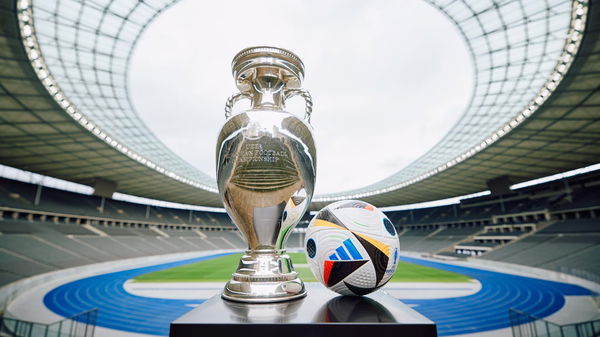

The wait for the 2024 UEFA EURO is reaching its climax. In just a few hours, the 17th edition of the prestigious tournament is set to begin in Germany as 24 teams across 6 groups will lock horns in over 51 matches. While all the contesting sides will have their eyes on the prize, aside from silverware, what kinds of financial rewards are in store for the nations and players?
How much is the prize money for UEFA Euro 2024?
Interestingly, this year, UEFA has managed to keep a total prize money pool of €331 million ($358 million). This is similar to what was given earlier in 2020 Euros (held in 2021 due to the pandemic). This money would be distributed among 24 teams based on their performances in the competition. To begin with, all the nations are bound to receive a fixed participation fee of €9.25m ($10m). The rest of the gains are in their hands.
ADVERTISEMENT
Article continues below this ad

ADVERTISEMENT
Article continues below this ad
Starting with the group stages, each group stage fixture is worth €1m ($1.1m). Therefore, a win in all three matches can get a team an earning of €3m ($3.2m). Meanwhile, a potential draw will see both teams split the money. For the round of 16, the winning team will pocket €1.5m ($1.6m). Subsequently, a victory in the quarterfinals has a reward of €2.5m ($2.7m) while a semifinal victory has a prize of €4m ($4.3m).
At last, if your favorite nation is fortunate enough to make it to the finals, then a win would see them pocket €8m ($8.6m) and the runners-up will get €5m ($5.4m). Ideally, this would mean that the maximum amount that a team can earn is €28.25 million (approximately $30 million). While the overall prize structure is clear, how much do players earn?
ADVERTISEMENT
Article continues below this ad
How much money players will get in UEFA Euro 2024?
All the players that usually play for their country don’t have a particular fixed amount that they pocket. One would suggest they earn yearly salaries as they do while playing for their domestic sides—after all, they reunite with their country for various international friendlies as well. However, this isn’t the case as they get paid according to the type of matches they play.
As for the UEFA Euro 2024, all the members of the roster would have to negotiate their pay with their respective nations accordingly. Notably, there are two types of payments: per diems and bonuses. Per diems are typically paid based on the number of days spent “away from home,” such as during training. On the other hand, bonuses are performance-based. Hence you can suggest that the bigger the federation greater the incentives.
ADVERTISEMENT
ADVERTISEMENT
ADVERTISEMENT
ADVERTISEMENT

